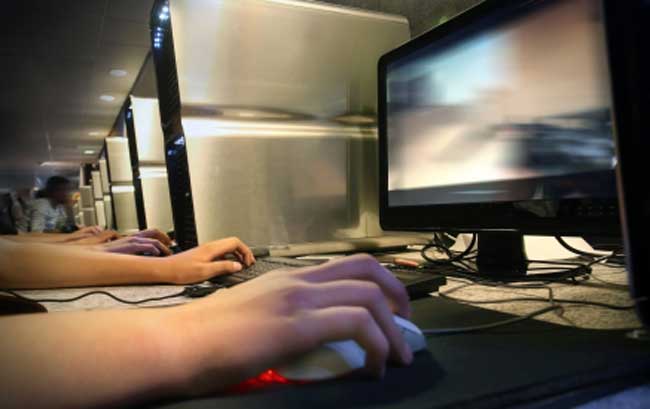PCs Not Dead Yet

Get the world’s most fascinating discoveries delivered straight to your inbox.
You are now subscribed
Your newsletter sign-up was successful
Want to add more newsletters?

Delivered Daily
Daily Newsletter
Sign up for the latest discoveries, groundbreaking research and fascinating breakthroughs that impact you and the wider world direct to your inbox.

Once a week
Life's Little Mysteries
Feed your curiosity with an exclusive mystery every week, solved with science and delivered direct to your inbox before it's seen anywhere else.

Once a week
How It Works
Sign up to our free science & technology newsletter for your weekly fix of fascinating articles, quick quizzes, amazing images, and more

Delivered daily
Space.com Newsletter
Breaking space news, the latest updates on rocket launches, skywatching events and more!

Once a month
Watch This Space
Sign up to our monthly entertainment newsletter to keep up with all our coverage of the latest sci-fi and space movies, tv shows, games and books.

Once a week
Night Sky This Week
Discover this week's must-see night sky events, moon phases, and stunning astrophotos. Sign up for our skywatching newsletter and explore the universe with us!
Join the club
Get full access to premium articles, exclusive features and a growing list of member rewards.
Whatever it says about priorities during a recession, the facts are there: Employment is down. Housing prices are down. But PCs shipments are up. Way up.
Globally, PC sales were up 2.3 percent in the third quarter of 2009 compared to the same quarter in 2008, reports market research firm IDC. The figures defy gloom and doom reports that circulated earlier in the year, after sales sagged 11.4 percent in the last quarter of 2008, 6.8 percent in the first quarter of 2009 and 2.4 percent in the second.
The recovery was so abrupt that another market research firm, iSuppli, said that the 19 percent surge between the second and third quarter sales was the largest quarter-to-quarter uptick it has seen since it began tracking the market in 2003.
Sales of PC microprocessor chips — the heart of the machines — did even better, indicating that PC vendors have high hopes. Sales of the chips rose 23 percent in the third quarter, reported IDC.
Mobile devices rule
A big factor behind the number is the popularity of mobile devices. Notebook sales never sagged during the recession, said iSuppli.
Processors suitable for mobile PCs, including entry-level chips like the Intel Atom used in mini-micro netbooks, were up almost 36 percent in the third quarter. However, a lot of them went to China, where the government is reportedly offering incentives for computer buyers.
Get the world’s most fascinating discoveries delivered straight to your inbox.
But the non-mobile devices did fine, also. Desktop PC processors surged 11.4 percent in the third quarter, and processors for servers surged 12.2 percent.
Transformation?
Things are so comparatively rosy that IDC is predicting a "recovery and transformation" during 2010. It foresees that worldwide spending on information technology (computers of all types and related telecommunications) will return to pre-recession levels, which was about $1.5 trillion.
For the sake of comparison, the global gross domestic product is just north of $60 trillion, and the gross domestic product for the United States is about $14 trillion.
As for the "transformation," IDC foresees that computer managers will race to apply some of the freed-up funds to the latest technology, including cloud computing and especially mobile computing.
The number of iPhone applications is expected to triple and the number of applications for the Android (Google's answer to the iPhone) is expected to go up by a factor of five. New uses will emerge for the growing population of netbooks.
The usual suspects
Any discussion of the PC market must address the eternal question: who's trouncing whom? In this case, it was Hewlett-Packard vs. "other."
Last quarter HP was in the lead, for the 13th quarter in a row, with nearly 20 percent of the global market, reports iSuppli. Its shipments grew 7 percent during the previous year.
Acer came in second, with 13.4 percent of the market, with shipments that shot up 16.6 percent, largely thanks to its position in the booming Asian market. Dell came in third, with 12.9 percent of the market, after seeing sales slide 5.9 percent.
Lenovo, a Chinese firm, came in fourth with 8.7 percent seeing its sales jump 17.2 percent. Toshiba was fifth, with 8.7 percent, while experiencing sales growth of 9.7 percent. The ubiquitous "other" got the remaining 40 percent of the market. These faceless firms did worse than Dell, and saw shipments slide 7.2 percent.
 Live Science Plus
Live Science Plus










